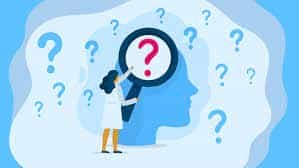Hearing loss and Alzheimer most common problems that most of people are undergoing. Though human controls are hearing, it needs some good signals from the ears. Mostly aged people will undergo moderate and severe hearing loss are more at risk to develop dementia and Alzheimer’s disease. This is a progressive neurologic disorder that causes the brain to shrink and brain cells to die. A tissue loss and change in brain structure create the first link between hearing loss and Alzheimer’s disease. Here is some information about hearing loss and Alzheimer.
Hearing loss
Hearing loss is the third common problem with aged people, which result when any part of the human ear is not working the way it should. The three different types of hearing loss that is based on where your hearing is damaged. Remember that some type of hearing loss or temporary, and some are permanent. The types of hearing loss include
- Conductive – this type of hearing loss occurs when sound cannot reach the inner ear. This loss involves the outer or middle ear. Conductive hearing loss may be due to earwax buildup, fluid, a punctured eardrum or outer ear and middle ear dysfunctions. This type of hearing loss may usually restore by medical treatment or surgery.
- Sensorineural – Sensorineural hearing loss involves the inner ear, and the type of hearing loss may be due to damage to the inner ear or the auditory nerve. This problem can be due to hereditary, come with age or be the result of illness or injury. Sensorineural hearing loss is usually permanent, but audiologists can help you with this type of hearing loss problem.
- Mixed hearing loss – As per the name of mixed hearing loss, it combines conductive and sensorineural hearing loss. It is an issue in your outer or middle ear and in your inner ear. Mixed hearing loss may lead to anything that cause s a conductive or sensorineural hearing loss.
How hearing loss develops
For hearing loss problems, the first and foremost signs would be missing parts of words, increased difficulty hearing in background noise or needing the television or radio to be louder. This problem may gradually increase, but the thing is, the changes may not be immediately noticeable. Hearing difficulty may also occur due to other factors like unclear speech or mumbling from others. If you undergo ear pain or sudden decrease in hearing or uneven hearing, then you must seek help as soon as possible.
How hearing loss can occur
Hearing loss problems may be due to several reasons. Here are some common reasons for the cause of hearing loss.
- Damage to the inner ear – One of the main reasons for hearing loss is damage to the inner ear. This may be mainly due to aging and exposure to loud noise because they cause wear and tear on the nerve cells or hair in the cochlea that send sound signals to the brain. The electrical signals will not be transmitted as efficiently when these nerve cells and hair are damaged or missing. You may also feel difficult to pick out words or sound against background noise.
- The gradual buildup of earwax – Maintaining a clean ear is very important because the buildup of earwax can block the ear canal and prevent the conduction of sound waves. Removing the earwax will help you to restore your hearing.
- Ear infection
The abnormal bone growths or tumours and ear infections may also cause hearing loss problems. Any infection or other problem in the outer or middle ear can cause hearing loss.
- Ruptured eardrum
The ruptured eardrum may be due to loud blasts of noise, poking your eardrum with an object, sudden changes in pressure and other infection. All these things can also affect your hearing.
Hearing loss diagnosis
The treatment for hearing loss is completely based on your hearing problem. Here are some common treatments that you must need to know.
- Surgery
- Antibiotics
- Changing medications
- Removing ear wax
- A hearing aid
- Cochlear implant and other sound-enhancing technologies
Alzheimer
It is the most common cause of dementia where an individual’s memory, thinking, understanding and judgement declines. Alzheimer disease causes the brain to shrink and brain cells to die. The exact reason for this disease is not yet fully understood, but few things that increase the risk of developing the conditions are founded. Those are increasing age, a family history of the condition, lifestyle factors and conditions associated with cardiovascular disease and finally, untreated depression.
Signs and symptoms of Alzheimer’s disease
Alzheimer’s disease symptoms develop gradually over many years and become more severe eventually. It may affect multiple brain functions. Minor memory problems are the first sign of Alzheimer’s disease.
Memory problems can become more severe if the condition develops. The further symptoms that can develop are included
- Difficulty planning or making decisions
- Confusion and getting lost in familiar places
- Problems with speech and language
- Personality changes such as demanding, becoming aggressive, and suspicious of others
- Low mood or anxiety
- Seeing or hearing things that are not there and believing things that are untrue
The seven stages of Alzheimer disease
Usually, the stages won’t always fall into neat boxes, and the symptoms might vary. Remember that there are no hard and fast lines between mild and moderate stages. Here are some lists of seven stages of Alzheimer disease that will help you to gain some knowledge about it.
- Normal outward behaviour
- Very mild changes
- Mild decline
- Moderate decline
- Moderately severe decline
- Severe decline
- Very severe decline
Who is affected by Alzheimer disease?
It is the most common disease for people over the age of 65. Normally with age, the risk of Alzheimer’s diseases and other types of dementia increases. The estimating of affecting this disease is 1 in 14 people over the age of 65 and 1 in every six people over the age of 80. Mostly 1 in every 20 people with this disease is under the age of 65, and this is known as early or young-onset Alzheimer’s disease.
Alzheimer’s test
For Alzheimer’s disease, there is no definitive test, but your doctor will likely do several tests to determine your diagnosis. When you approach your doctor, they will do some mental, physical, neurological and imaging tests. The mental test may help them to access your short-term memory, long term memory and orientation to place and time. For example, your doctor may ask you what day it is to recall a short list of words and other simple questions.
After the metal test, they will conduct some physical exams such as checking for blood pressure, assessing your heart rate, taking your temperature, etc. And if needed, they may also collect urine or blood samples for testing in a laboratory.
You may also conduct a neurological exam to rule out other possible diagnoses like acute medical problems like stroke or infection. They may ask you to take some scans like Magnetic resonance imaging (MRI) scan, Computed tomography (CT) scan and Positron emission tomography (PET) scan.
Treatment
Still, now there is no known cure for Alzheimer’s disease, but the treatment focuses on managing symptoms and supporting the person and their family. Doctors might develop strategies to help you to focus on tasks, avoid confrontations, limit confusion, get enough rest every day and stay calm.
- Your doctor will treat your medical conditions that contribute to confusion and physical declines like lung disease or anaemia.
- They will give you memory aids and memory triggers like calendars and written reminders.
- Your doctor will encourage you for social interaction to help prevent feelings of loneliness and depression.
- They will encourage you a regular daily routine to reduce confusion and advise you not to smoke.
Alzheimer’s medication
Your doctor will also recommend medication to help ease your symptoms and delay the progression of the disease for as long as possible. They will prescribe you some medicine for several stages of Alzheimer’s disease. They will give you medication to help treat symptoms related to Alzheimer’s. The symptoms are restlessness, depression, aggression and agitation and hallucinations.
Wrapping it up
By now, you may come to know many things about hearing loss and Alzheimer disease. Once you detect any symptoms related to these diseases, it is advisable to approach the doctor as soon as possible.





